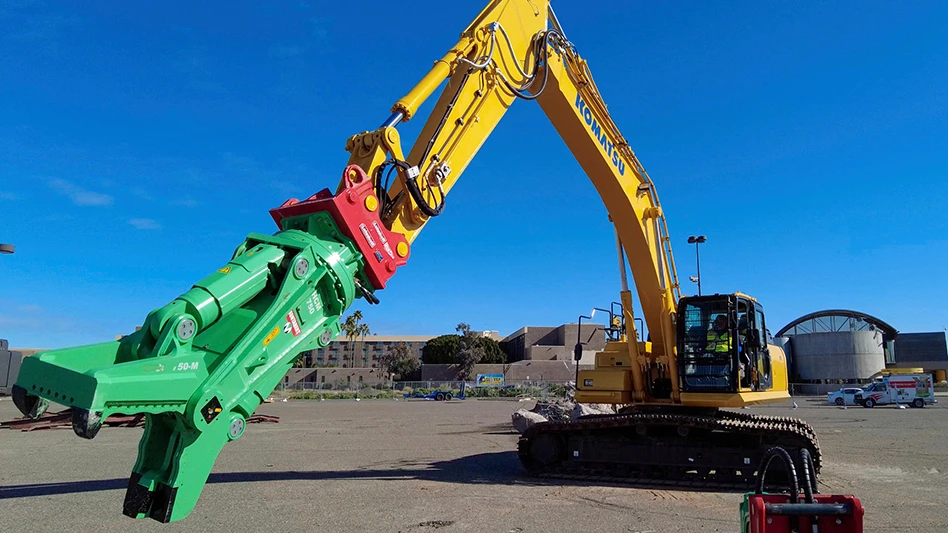
© AmpH | istockphoto.com
The Surface Transportation Board (STB) has adopted two rules establishing new rate reasonableness procedures that provide two streamlined approaches for shippers and railroads to resolve smaller rate disputes.
According to a news release from the STB, the board has established a voluntary arbitration program and a new procedure for rate challenges, known as final offer rate review (FORR). STB says either rate review mechanism will improve shippers’ access to rate reasonableness reviews for smaller rate disputes.
The STB has provided that the voluntary arbitration program will become operative only if all seven Class I carriers commit to participating in the program for five years and do so within 50 days of the date of publication of the final rule in the Federal Register. STB says if all Class I carriers do so, they will be exempt from the FORR procedure.
STB says it had issued a notice of proposed rulemaking in September 2019 and sought public comment on its proposal for the new FORR procedure. As a result, five Class I railroads filed a joint petition urging the board to exempt them from the FORR procedure, promising in return to agree to resolve rate challenges through binding arbitration, which STB says is a methodology that the carriers had previously refused to participate in for many years. STB says the board reviewed that petition and considered whether establishing a voluntary arbitration program would serve as a practical alternative dispute resolution mechanism to address smaller rate disputes. In November 2021, the board advanced rulemakings in both FORR and the establishment of a voluntary arbitration program.
STB says the two new review mechanisms are limited to rate disputes worth up to $4 million in relief over two years. Under the new FORR procedure, if the board finds a rate to be unreasonable, the board will decide the rate by selecting either the complainant’s or the defendant’s final offer, subject to an expedited procedural schedule that adheres to firm deadlines. Under the arbitration program, Class I rail carriers would commit for a period of five years to arbitrate rate disputes under a similarly expedited schedule. STB says the final rule establishing the arbitration program is effective 30 days from the date of publication in the Federal Register, and the final rule establishing the FORR procedure is effective 60 days from the date of publication in the Federal Register.
“The board today has taken great strides in its long-term quest to make the adjudication of smaller rate disputes more accessible, reasonable and less time-consuming,” says Martin Oberman, chairman of the STB. “I want to underscore the leadership of former chairman Ann Begeman in establishing the Rate Reform Task Force in 2018 whose thorough effort led to the ideas incorporated in these two new procedures.”
Oberman says the two rules aim “to strike a balance between the competing interests of various stakeholders.”
He says, “While much of the shipper community has expressed a preference for FORR and the railroad community pursued a voluntary arbitration program in lieu of FORR, both rules have much in common—they both offer relief under similar time frames, allow for flexibility to use different methodologies and have the same monetary limits. I am confident that either program will provide shippers with access to more meaningful rate relief than was previously available to them. I want to thank all of the board’s stakeholders for their engagement during these rulemaking processes, and I applaud the board’s staff for all of their hard work and dedication in bringing these rules to fruition. … I am optimistic that this time the board’s efforts will achieve this long-desired goal. I encourage the Class I railroads to accept the opportunity afforded by the new rule and sign up for the arbitration program they clearly prefer. However, if they do not, in my view, FORR also provides a strong rate relief mechanism, and its availability would also streamline rate review processes in small rate cases. To be clear, regardless of some differences of opinion about the most preferable way forward, all board members are committed to ensuring review of rate challenges are practical and affordable.”
Latest from Construction & Demolition Recycling
- NWRA: NIOSH cuts a step in the wrong direction
- Ferrous price hikes could be poised to pause
- Northstar secures 15-year lease extension for asphalt shingle recycling facility
- Greenwave asks for SEC filing extension
- Construction Plastics Initiative lines up projects
- ShearCore adds dealership group in Canada
- Hitachi forms new executive team for the Americas
- Montabert Silent Demolition Tools





